Detroit — A controversial $250 million blight bond that would allow the city to ramp up demolitions if approved by voters has sparked dueling campaigns ahead of the Nov. 3 election.
Opponents from the Call 'Em Out Coalition are hitting the streets to urge voters to reject the plan — Proposal N, as in neighborhoods — citing a lack of trust in government handling of taxpayer dollars.
While state Sen. Adam Hollier, D-Detroit, is heading up a canvassing effort of his own to gain voter support for the plan he regards as another tool to get houses torn down in areas of the city that have been left out while giving Detroiters more opportunities to do the work.
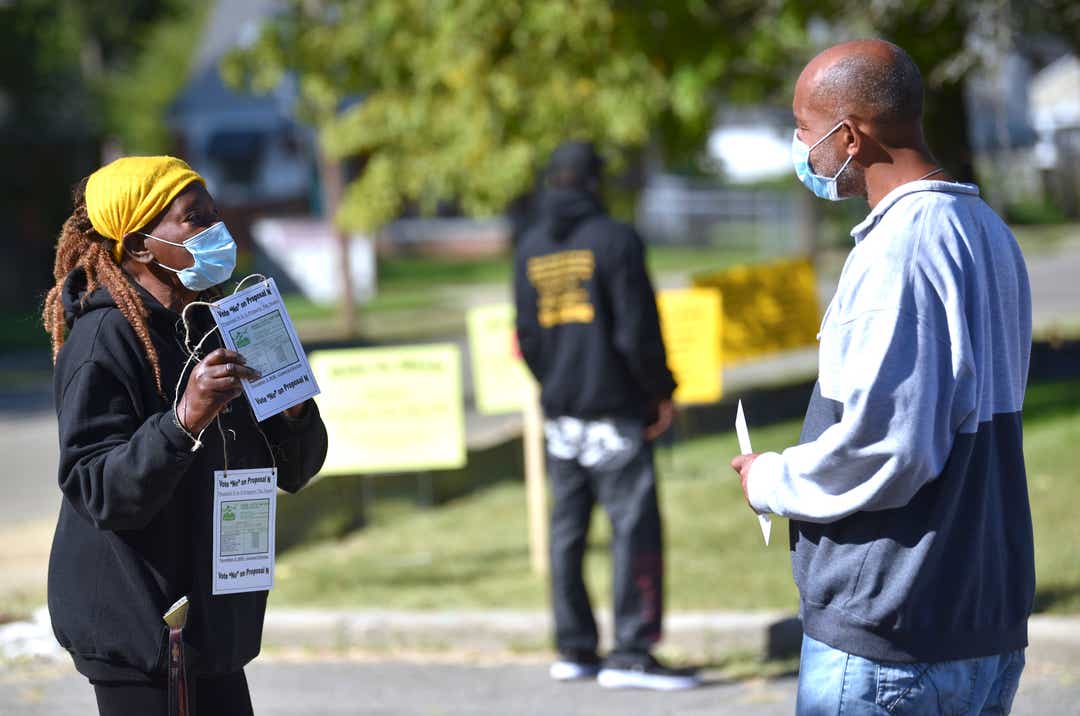
These efforts come after a divided City Council voted 5-4 in July to put the measure on the ballot. If approved, it will continue city efforts to tear down 8,000 blighted structures and stabilize another 8,000 vacant but structurally sound houses.
The city also would commit to a goal of awarding more than half of all contracts associated with the work to Detroit companies. City residents would get preference for acquiring homes that can be salvaged and reused.
Coalition leader Agnes Hitchcock said demolition in Detroit has been problematic for years. The government-backed effort has been at the center of federal, state and local investigations and reviews over bidding practices, record-keeping and soaring costs.
She also pointed to a Detroit News investigation that revealed homeowners had been overtaxed by more than $600 million after Detroit failed to accurately bring down property values in the years following the Great Recession.
"We can't trust people with our money, especially in the form of a new bond when the money already given to them has been mismanaged," she said. "Not to mention, that the $600 million resulted in people actually losing their homes."
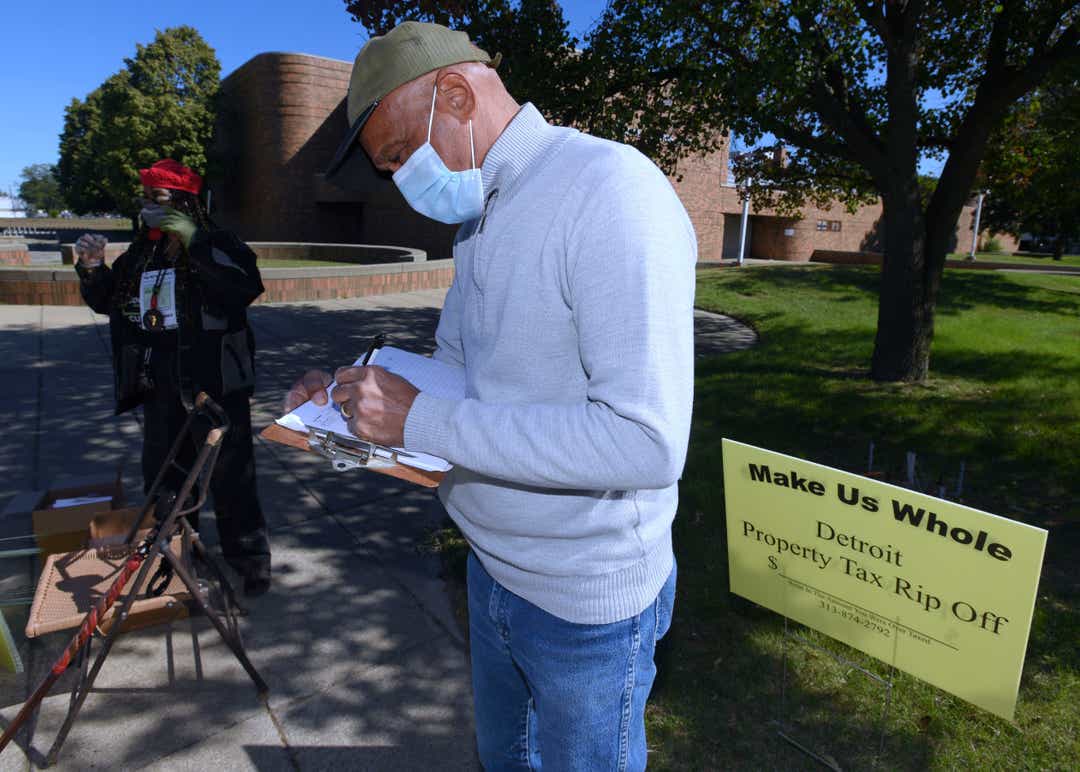
Hollier said he’s been talking with community and interest groups since mid-June about the plan, which he stressed will direct attention to areas of the city that missed out under the federal program. It also will give Black-owned and city-based contractors, realtors and urban farmers first dibs, he said.
“It creates a market for black entrepreneurs from the neighborhoods to do this work,” he said. “Proposal N is about making sure that people who have been left out are taken care of.”
Hollier agreed that the coalition’s complaints on the overassessments are warranted.
“It’s important to recognize that overassessment was a real thing. A lot of good people were hurt by it, and that’s real,” he said. “People have been saying that government is not transparent enough. It’s really important for citizens to ask their government to do a better job of being accountable and that’s why I’m involved in this.”
Detroit has taken down 15,084 dilapidated properties with $265 million in federal Hardest Hit Fund dollars since spring 2014. The last of the federal money for the program was used up with demolitions last month.
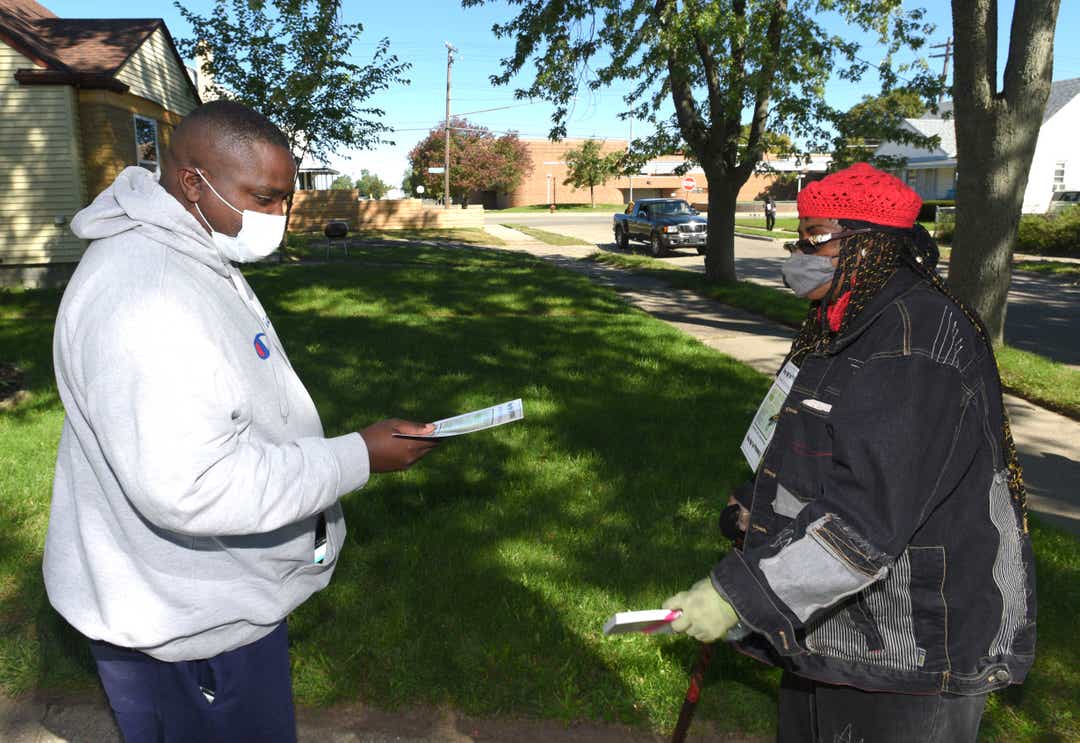
The federal program limited demolitions to specific geographic areas within the city. Since its inception, the program expanded its boundaries four times but was still unable to touch all neighborhoods in need, especially in Council Districts 3, 4 and 7.
The federal guidelines also prohibited giving preference to any contractor based on race, gender or location.
But city officials estimate 22,000 vacant houses in Detroit remain and progress has ground to a halt since $50 million per year allocated for blight in the city’s bankruptcy plan was diverted to stave off a $410 million budget shortfall tied to the COVID-19 pandemic.
The proposal would be funded by unlimited tax general obligation bonds, which are voter-authorized debt. The existing tax rate would remain at 9 mills instead of eventually dropping to about 6 mills, according to the city. That drop would be $60 less per year for the average Detroit homeowner with a taxable home value of $19,000.
The council rejected a separate bid from Detroit Mayor Mike Duggan's administration last fall. At that time, the proposed initiative sparked contentious debate and a packed town hall that drew upward of 500 residents, activists, clergy and lawmakers.
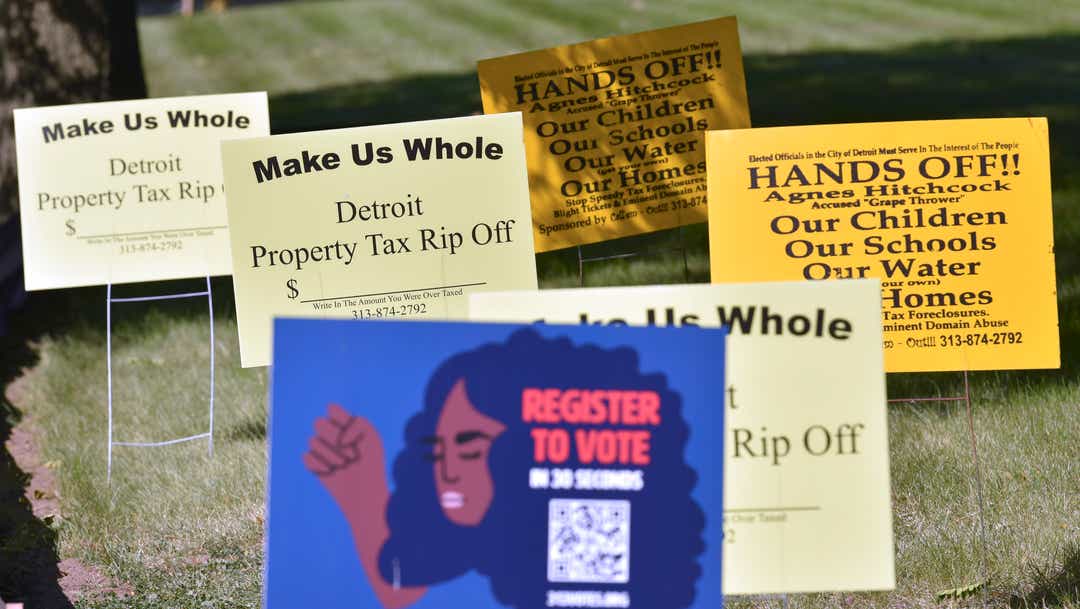
Critics then cited worries over a long-running federal criminal investigation into the city's demolition program and the need for more guarantees that Detroit residents would be hired to do the work.
Sandra Pickens of the Littlefield Community Association on Detroit's west side asked council members in July to hold off on approving putting the ballot measure before voters, mainly to allow community groups more time to discuss it.
Pickens said she hasn’t heard of any Littlefield residents who have received literature yet about the bond.
"Because it’s going to be on the ballot in November, I would have expected to see something so that people would understand and know just how they are going to vote,” she said.
Hollier said that the education effort across the 139-square-mile city has been “slow going” based on limitations caused by the virus.
“I hope that we’ll be able to turn the gears up and get faster to connect with more folks,” he said. “People should know what they are getting out of this.”
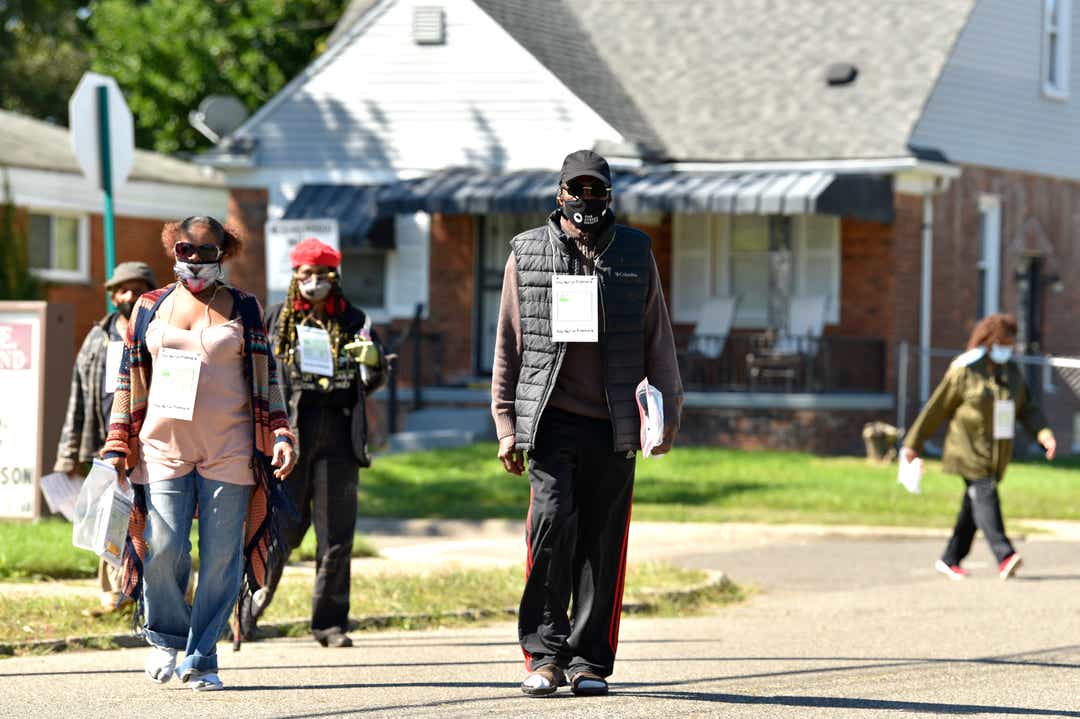
Hitchcock said her group will “battle” for the bond’s defeat, using Detroit voter rolls to target educational efforts in areas with high voter turnout.
"We're working this just like it was a political campaign," she said. "The people in the city of Detroit are not going to finance that $250 million bond."
The bond will provide dedicated resources to sustain neighborhoods, Hollier argued. If it fails, budget shortfalls prompted by COVID-19 will limit options for blight remediation.
Detroit has projected $410 million in revenue losses due to the pandemic in the last and current fiscal years.
Duggan has touted the bond as a measure to help “transform the quality of life in the neighborhoods.”
He told The News this month that the Call Em Out members have opposed his actions since he became mayor, and they are entitled to do that. The decision is in the hands of city voters, he said.
“This is America. That’s how democracy works,” Duggan said. “They are entitled to campaign against Proposal N. Based on everything I’m hearing in every neighborhood in this city, the people are fed up with the blight and are ready to get rid of it.”
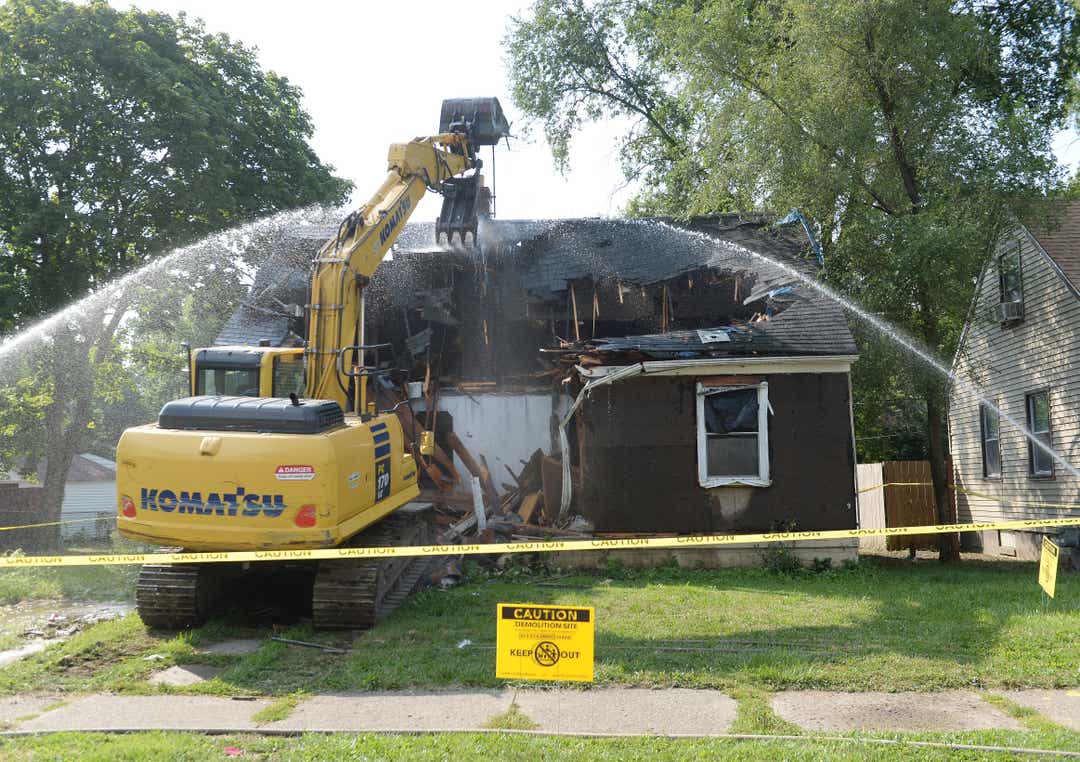
cferretti@detroitnews.com
"plan" - Google News
September 24, 2020 at 09:45AM
https://ift.tt/3mN8kTr
$250M blight bond plan spurs spirited campaigns in Detroit - The Detroit News
"plan" - Google News
https://ift.tt/2un5VYV
Shoes Man Tutorial
Pos News Update
Meme Update
Korean Entertainment News
Japan News Update
Bagikan Berita Ini














0 Response to "$250M blight bond plan spurs spirited campaigns in Detroit - The Detroit News"
Post a Comment